So this is something I’ve been meaning to sit down and put into words for a while, and partially spurred on by this recent thread, I decided to go ahead and do it. As I sit here and begin to write, I do not come into this with a particular point of view about what Mass Effect 5 should be, although I may have settled on one by the end.
STORY
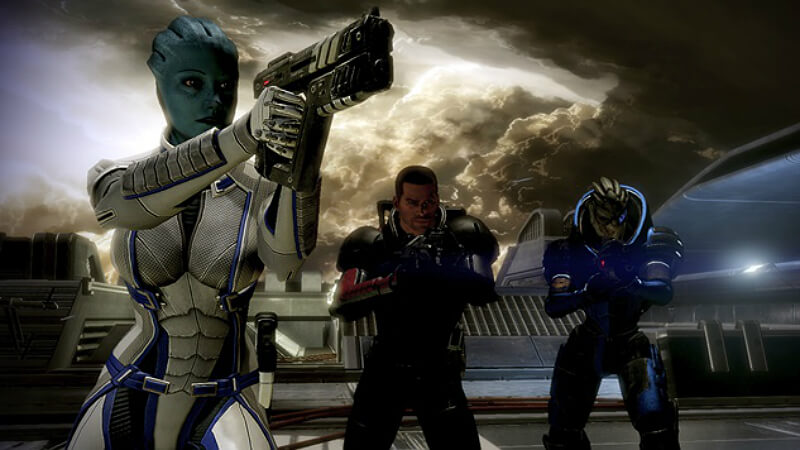
First and foremost, we have to establish what kind of story the game could tell, because this is Mass Effect. The story was the only thing carrying the series through at least the first two games, and the lackluster (by the standards of this series) story in Andromeda nearly blew up the franchise, and may in fact have done so for the foreseeable future. If the story doesn’t work, the game doesn’t work.
Although I largely disagree, I think the consensus view among fans is probably that the series should return to the Milky Way, so let’s examine what stories can be told in the Milky Way. Frankly, without a retcon, I don’t see any story to be told. The Destroy ending obliterates most advanced technology, and of course it wrecks the relays. Even if anyone was capable of rebuilding them, is anyone capable of coordinating that rebuild? If, say, the asari rebuild the relay near Thessia, it’s not like they can use it to go anywhere because there are no other relays in operation. Will this rebuild happen in time before supplies run out on worlds that have been scorched?
But Control and Synthesis don’t provide us with any storytelling room either. Both of them ultimately lead to a post-scarcity, post-conflict galaxy in which there is no problem that can’t be solved by the awesome power of either a controlled armada of superweapon-supercomputers or an entire galaxy populated by nothing but sentient supercomputer cyborgs. You can’t tell a story in those worlds, let alone a playable one, unless you undo the effects of the Control and Synthesis endings.
And all of this ignores that in order to do a Mass Effect 5 in the Milky Way, you would have to lock in one of the three endings as canon, which is bound to piss off some segment of people, even though they’ll largely be the same people who hated the endings anyway.
So if we’re going to have a Mass Effect 5 set in the Milky Way, it can only be done in one of two ways (ignoring the prequel approach.) The first, which I don’t think anyone wants, is a reboot. The second is to retcon the ending of ME3 entirely and change the nature of the Crucible. I’ve generally come to the point of view that the entire premise of the game–that we’re building a superweapon which can end the Reaper threat with the push of a button–was a mistake. It’s such an extremely unsatisfying way to defeat the big bad in a story. And it doesn’t really make any sense, because the writers don’t make an effort to have it make sense. Why is the Citadel the catalyst? How does any of this work? It’s very flimsy.
If you retcon the Crucible to have simply been a powerful weapon of some kind, capable of killing Reapers effectively, the story of ME3 becomes the story of the beginning of the war, not its entirety. The races of the galaxy have unified and constructed a weapon that levels the playing field. Now you can continue to tell stories about how that war continues to play out. Perhaps the good guys take back a bunch of systems, and in some areas of the galaxy life even returns to a semblance of normal. You can play around with what areas those are, too. Perhaps, in a strange turn, the safest places end up being the Terminus Systems and the Traverse, since the Reapers were more heavily focused on the major hubs of civilization. You can have a lot of fun with this kind of story.
But it’s also possible that people don’t just want to keep playing games about an endless, dreary, depressing state of war against the Reapers. So how else can we retcon the ending? The easiest way to retcon it, I think, is to do what probably all of us were expecting the first time we ran into that beam during Priority Earth: the Crucible destroys the Reapers and that’s the end of it. It doesn’t destroy EDI, it doesn’t destroy the geth, it just destroys the Reapers. I would argue that makes far more sense. You can easily construct a science-magic mumbo-jumbo way that the Crucible uses the Citadel’s relationship to the relays and the Reapers to send some kind of killswitch signal, and that makes a lot more sense than “no it has to destroy ALL artificial intelligence because fuck you.”
But if we go that route, what story do we actually tell next? The big question is: do we tell more stories about Shepard and the gang? I would argue that it’s probably not a good idea to do so. Shepard’s story was told, albeit imperfectly, over the course of the trilogy. So the story now is about the rebuilding of the Milky Way’s civilizations and the broader galactic community. There are a lot of themes to explore there, of course. There is probably a great deal of pressure to abandon the old distinct nation-states and embrace a unified galactic governance model in a more serious and integrated way than had been done prior to the arrival of the Reapers, since clinging to the old divisions was a big part of what allowed the Reaper War to happen and to nearly extinguish sapient life. But there is also probably a lot of pressure against governing bodies and authorities, since what did they do to protect anyone from an extinction event?
But here’s the thing: haven’t we already started exploring those themes in Andromeda? And without the added baggage of constantly having to refer back to various characters and locations, both major and minor, from previous games? If we want to examine the idea of building a galactic society and dealing with the threats of the frontier and the fears that arise from the resulting tensions, would we not rather do so in a context more free from the baggage of prior games? The fact of the matter is that we have many, many, many plot threads left dangling in Andromeda, and they’re interesting ones. Is that not the story more worth telling?
(A final note on this section: if they retcon the end of ME3, I really do think they owe it to everybody to release a patch or a free DLC of some kind for the game that literally does change the ending to reflect the new canon.)
GAMEPLAY
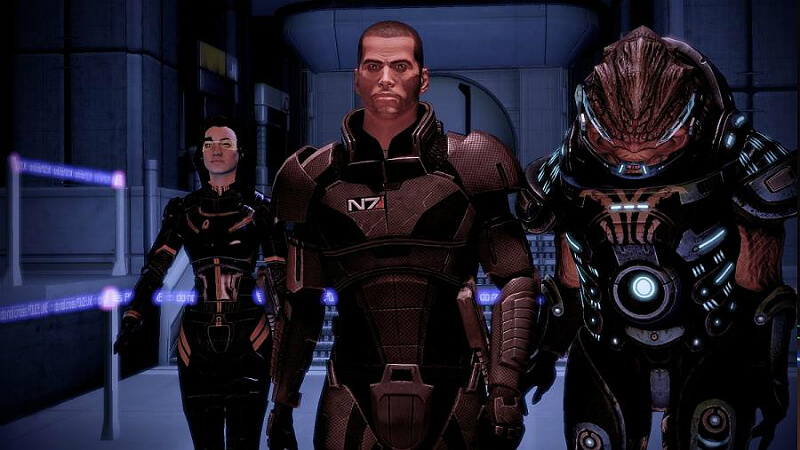
While the story is important, it’s clear that gameplay is too. ME2 is actually my least favorite game in the series to play, leaving aside issues of narrative, because to me the movement and combat feel like a mobile game that was ported to PC. It literally feels like playing Deus Ex: The Fall at times. Others, however, really didn’t like the openness of MEA. They felt, with some justice, that it diluted the story. Even if the story had been better, they would argue (and I agree to some extent), it would be pretty hard to actually notice because the side missions dilute it so badly. Everything feels unfocused, like you’re constantly putting a time-sensitive mission to save all life in the galaxy on hold to deliver somebody a pizza. Gameplay and story are separate components, but they do interact and that interaction can impact how each is received. And this is a valid point of view. I recently did a no-frills-ish playthrough of MEA, doing very few side missions, and I definitely noticed how much more coherent and urgent the story felt–and, as a result, how much more sense those side missions made when they were being carried out after the conclusion of the main questline.
But here’s something I think a lot of people don’t notice: ME2 is similarly unfocused. It’s the least focused and most open of the original trilogy, in terms of how the story plays out (which can make it all the more maddening that the actual level design is not open at all.) But ME2’s great strength is in how it handles the ticking-clock narrative mechanic. The clock is rarely actually ticking in ME2. Human colonies are disappearing, but there’s rarely anything for you to do about it, and when there is, you’re forced to do it when the game tells you to, at least until the Reaper IFF mission. And that mission gives you a narrative out for not doing it right away: you need to build up your team. But once you do that mission, the ticking clock is introduced, and ignoring it does have real consequences. But, if you didn’t plan properly (and who did on their first playthrough) responding to it too quickly would also have consequences. As a result, there is a clear way to do a completionist playthrough of ME2 in which everyone survives, you do every side-mission (most of them after the Suicide Mission), and you also don’t feel like you ever were twiddling your thumbs while the galaxy burned.
In terms of the interaction between gameplay and story, you’d be hard-pressed to find many games that did it better than ME2, and I imagine most of us would agree with structuring a future Mass Effect game in a similar fashion. The problem arises with the question of actual world design. There are people who feel like MEA was too radical of a departure from what had come before, that open-world design is not Mass Effect design, that it was a sop to the prevailing trend of the day.
To those people, I would point out that so was Mass Effect 2. Mass Effect 2 was very jarring to me when I first played it, because I was expecting another game like Mass Effect. ME2 was very much not that. The gameplay was radically different, the inventory system was radically different, so much had shifted in ways that I didn’t care for. And it had been done as a sop to the prevailing trends of the day. Significant changes were also made to the story for the same reason. And yet it was wildly successful and might very well be a plurality favorite of the series among fans.
EA is always going to be a big business focused on making money. They’re not going to put out a game that would have been popular in 2012. They’re going to put out a game that they think will be popular in [current year]. And that fact, in and of itself, has not historically been enough to ruin Mass Effect games. We, as a fanbase, are clearly not married to one particular style of RPG/shooter hybrid. But if we decide that, for whatever reason, we will now only accept one particular blend of shooter elements and RPG elements, and it has to be the blend that was popular in 2012, we’re just going to be miserable forever and never get to fall in love with another Mass Effect game.
I bring all of this up so I can emphasize this: you are going to have to accept that the next Mass Effect game is going to have movement and combat and level design more similar to what you got in Andromeda than to what you got in ME2/ME3. And if I could tolerate it for ME2, you can tolerate it for ME5.
Beyond that, I think if we’re all honest with each other, a game series like Mass Effect should be more open in its world design. How much sense did it ever make that, in the year 2183, everything important on the Citadel happened in one area of the Presidium and one area of the Wards, while in the year 2185, everything important on the Citadel happened in Zakera Ward, but then in 2186, it all happened in two docking bays, one embassy (which at various points appeared to be both the human embassy and the hanar embassy), one nightclub, one hospital, one (even smaller than before) area of the Presidium, and a couple of casinos? How much sense did it make that everything you needed to do on Tuchanka was a short drive away from Urdnot’s camp in Mass Effect 2? These were limitations of an older time, and to me, what was really jarring about MEA was not the openness of the drivable areas but the tiny dimensions of the world hubs. Kadara Port is like one city block, in terms of how much you see. Aya, the center of angara civilization, isn’t much bigger. That’s just plain weird and immersion-breaking, and it always has been a weakness of Mass Effect games (and plenty of other RPGs and RPG-adjacent games, for that matter.)
Conclusion
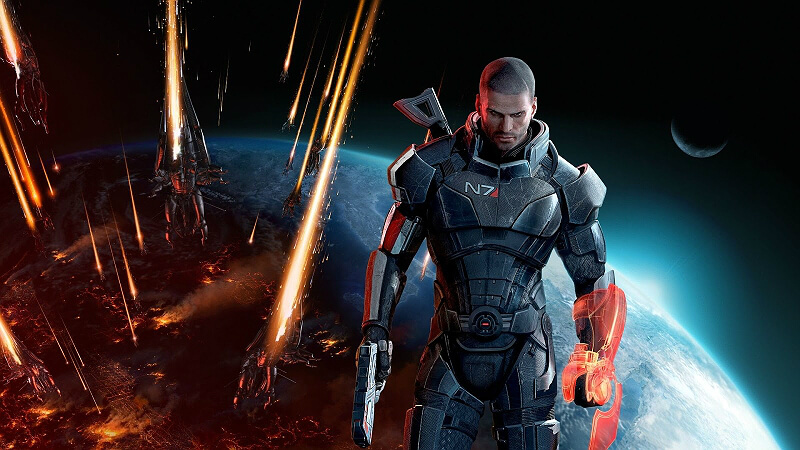
As I suggested at the outset, I don’t think I’ve arrived at any conclusions about the story. I do think that a Mass Effect 5, if one ever actually materializes, is going to have a more open-world design reminiscent of ME1 and MEA, but even bigger. Mostly what I wanted to accomplish with this was to encourage ME fans to actually think critically about what a fifth Mass Effect game can realistically be expected to be, so people aren’t, yet again, expecting one thing and getting something entirely different.
Original Link – Continuation of discussion


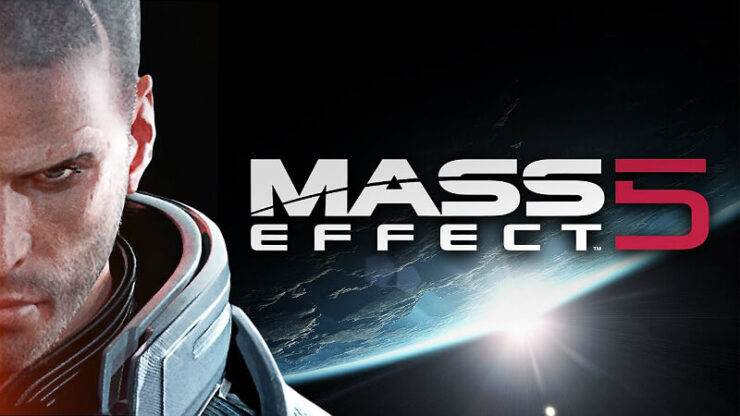

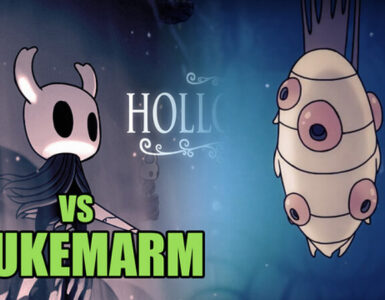
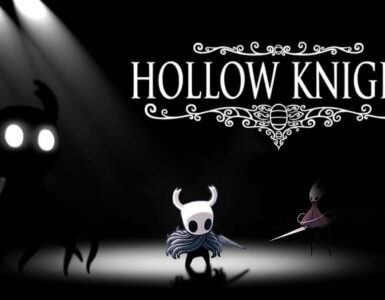
Add comment